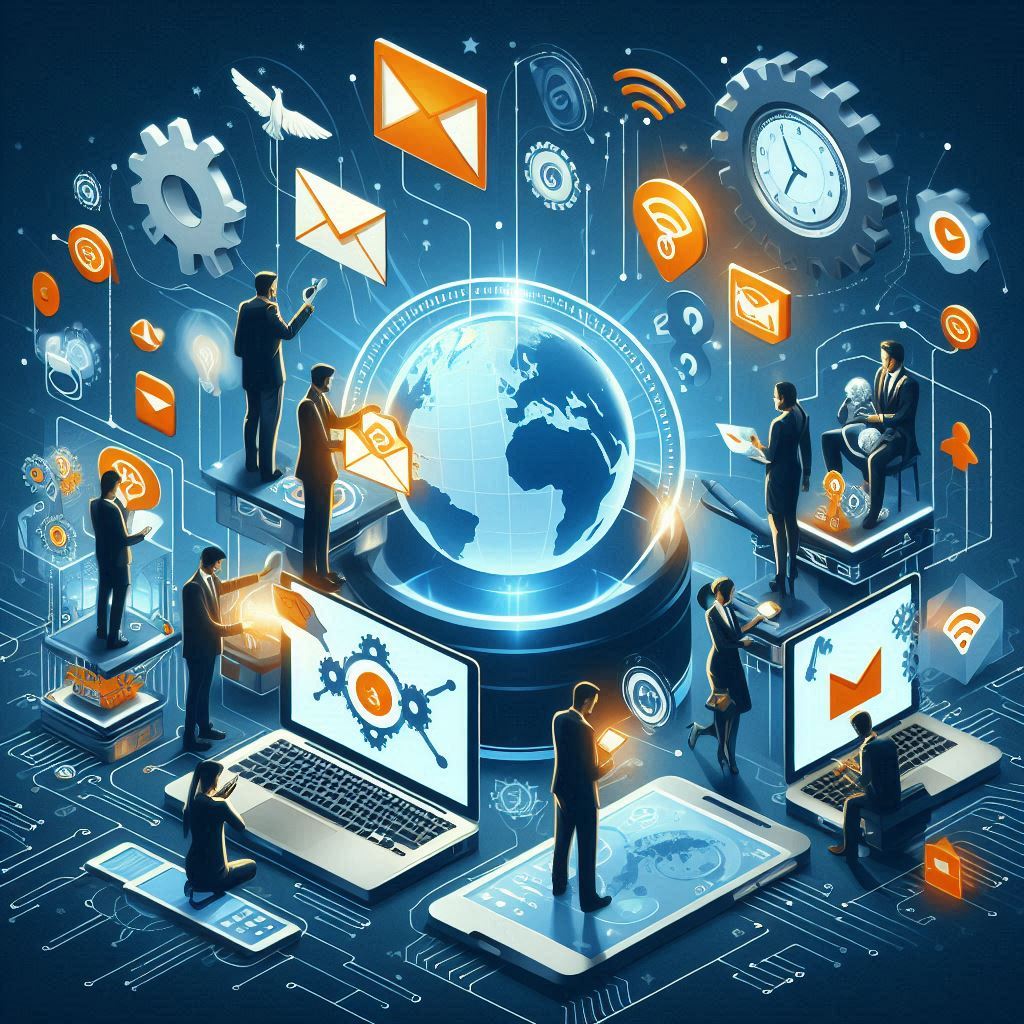Introduction

The field of digital marketing is always changing, and one of the key trends influencing this future is personalization. Businesses must change to meet the expectations of increasingly discriminating consumers by providing individualized information, goods, and services. Using cutting-edge technology like artificial intelligence (AI), machine learning, and big data to provide highly relevant and interesting experiences to each individual user is critical to the future of personalized digital marketing.
The Rising Demand for Personalization
Customers of today want brands to be aware of their needs and preferences. They are seeking individualized experiences that align with their own preferences and are no longer receptive to generic marketing messages. The need for more complex personalization tactics is being driven by this change in consumer behaviour. Marketers now need to use data-based insights to create offers and content that are tailored to each unique customer.
Key Technologies Driving Personalized Marketing
- Machine learning and artificial intelligence: These two technologies are at the forefront of customized marketing. With the help of these tools, marketers can now analyse massive data sets, spot trends, and forecast consumer behaviour. AI helps brands to personalize information in real time and with relevance to each individual user by automating the personalization process.
- Big Data Analytics: The ability to collect and analyze big data is essential for personalization. With access to comprehensive customer information, including browsing habits, purchase history, and social media activity, marketers can create detailed customer profiles. These profiles allow brands to segment their audience and deliver personalized content that addresses the specific needs of each group.
- Customer Data Platforms (CDPs): CDPs are becoming indispensable tools for personalized marketing. These platforms consolidate data from various sources, providing a unified view of each customer. With a CDP, marketers can deliver consistent and personalized experiences across multiple channels, including email, social media, and websites.
- Personalization Engines: Personalization engines use algorithms to deliver content, product recommendations, and offers based on individual user behavior. These engines analyze data in real-time, enabling brands to instantly adapt their marketing messages to each user’s preferences.
The Benefits of Personalized Digital Marketing
- Enhanced Customer Engagement: Personalized marketing leads to higher engagement rates, as customers are more likely to interact with content that speaks directly to them. By delivering relevant messages, brands can forge stronger connections with their audience.
- Higher Conversion Rates: Personalization significantly improves conversion rates. When customers receive tailored offers and recommendations, they are more likely to make a purchase. Personalized marketing also reduces cart abandonment rates by addressing each customer’s specific needs.
- Increased Customer Loyalty: Brands that consistently deliver personalized experiences are more likely to build customer loyalty. When customers feel understood and valued, they are more inclined to return to the brand and make repeat purchases.
- Optimized Marketing Expenditure: Personalized marketing enables brands to allocate their marketing budget more efficiently. By targeting specific customer segments with tailored messages, marketers can maximize the return on investment (ROI) of their campaigns.
The Challenges of Personalization
Although customized marketing has many benefits, there are drawbacks as well. Data privacy is one of the main barriers. Because customization depends on gathering and evaluating consumer data, organizations need to make sure they abide with data privacy laws and uphold consumer confidence. Furthermore, smaller organizations may find it difficult to adopt personalized marketing techniques due to the large investment in technology and experience required.
The Future of Personalization
With innovations being driven by AI, machine learning, and data analytics, personalized digital marketing has a bright future. We should expect even more advanced customization strategies as technology develops, such hyper-personalization, in which each and every element of the consumer experience is customized for each individual. Personalized marketing techniques and embracing these trends will put brands in a strong position to succeed in the cutthroat world of the internet.
Conclusion
In the digital age, brands need to embrace personalization in order to remain competitive. It is no longer a luxury. Through the utilization of cutting-edge technologies and insights derived from data, companies can provide tailored experiences that captivate clients, stimulate purchases, and cultivate brand loyalty. Future developments in tailored digital marketing will present new chances for companies to engage with their target audience more deeply.
